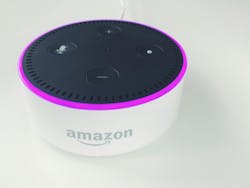Americans are increasingly smartening up their homes for added convenience, style, and future resale value, and manufacturers are racing to lead in the burgeoning field.
According to a survey done by market research company Forrester Research, 59 percent of U.S. adults said they were interested in using a smart home device, and it predicts that more than 66 million households will have smart speakers in their homes by 2022, growing from 26 million in 2018. Though, Forrester says that currently, as many as 33 percent of smart speakers are still in their boxes. The company projects that roughly 20 percent of households will smart devices beyond smart speakers by 2022, growing to 26.7 million from 12.2 million in 2018.
On the manufacturer side, “It’s a really messy space and there’s a lot of noise in this,” Frank Gillett, principal analyst at Forrester, tells The New York Times. While Samsung is leading in smart appliances, “Much of the innovation is coming from focused start-ups and midsize companies,” says Gillett.
Security, privacy and trust remain a big concern among owners of smart speakers. It’s that “big brother is listening” concern, said Charles Golvin, senior research director at Gartner, a research and advisory firm. In a 2017 survey by Gartner of smart speaker owners in the United States, the United Kingdom, and Germany, 44 percent said they would be more willing to use a virtual personal assistant app, like Alexa, Siri or Google Assistant, if all of their personal data stayed on the device rather than being stored in the Cloud.
